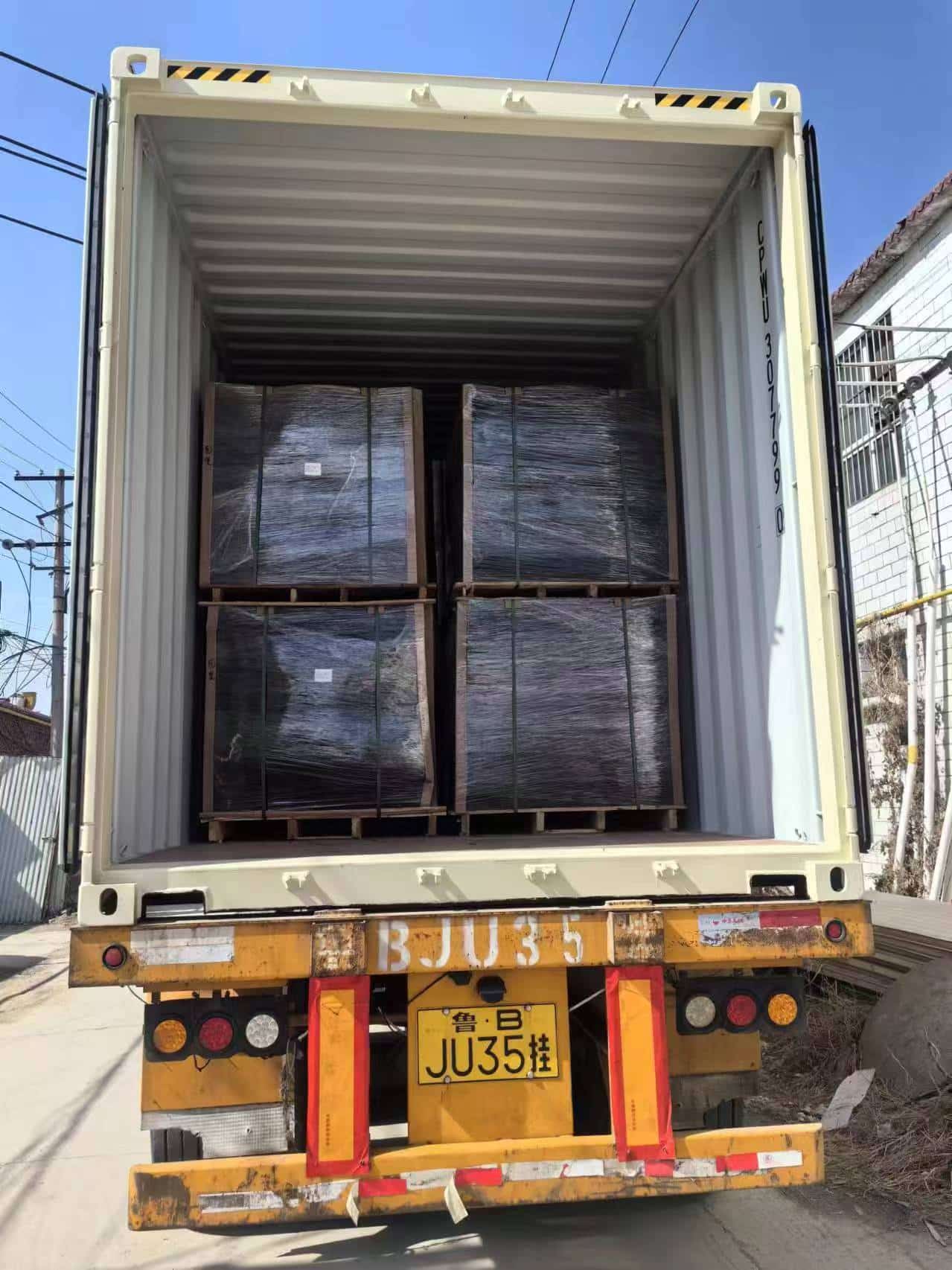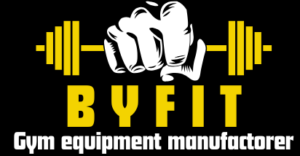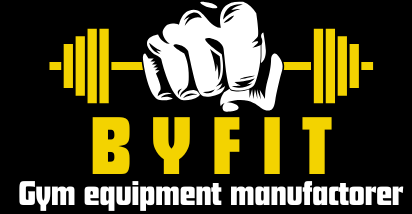Setting up a home gym, but puzzled about where to get rubber mats that won’t fall apart? It seems simple, but finding genuinely good quality flooring can feel like navigating a maze.
Your best bet for consistent quality, safety, and often better value is sourcing directly from a specialized rubber flooring manufacturer. Factories like us at BYFIT focus solely on flooring, ensuring expertise and control over the product you receive, bypassing unnecessary markups.
](https://www.byfitgear.com/wp-content/uploads/2025/03/Gym-Flooring-1687195401207.png) BYFIT Quality Rubber Flooring Rolls
BYFIT Quality Rubber Flooring Rolls
Finding the right source is just the first step. Once you know where to look, you need to understand what makes a rubber mat truly suitable for your needs, whether it’s for personal use or for your customers if you’re a distributor. Let’s dive into the specifics that separate great flooring from the merely adequate.
What should I look for when buying rubber flooring?
Focusing only on thickness or a low price tag is a common trap. You install the mats, they look okay, but soon they start to curl, smell funny, or worse, become a hazard.
Look beyond the surface. Key factors include the rubber material1 itself (low odor, high density), specific safety features2 like beveled edges and anti-static properties, verified certifications3 (like REACH, CE), and the supplier’s ability to deliver consistently and on time.
](https://www.byfitgear.com/wp-content/uploads/2025/03/byfit-gym-flooring-texture-detail.jpg) BYFIT Flooring Texture Detail
BYFIT Flooring Texture Detail
Let’s break these down further. It’s like picking ingredients for a recipe; the final dish is only as good as what goes into it. Skipping a key ingredient or using a low-quality one can ruin the whole thing. When I first started in this business 10 years ago, I saw many buyers get burned by focusing only on the lowest price per square foot, ignoring these crucial details.
Why do density and odor matter?
Not all rubber is created equal. You want high-density rubber. Think of it like comparing a dense, sturdy oak plank to flimsy particle board. High density means better durability, shock absorption, and less chance of denting under heavy equipment. Also, pay attention to odor. Low-quality rubber often has a strong, unpleasant smell from volatile organic compounds (VOCs), which you don’t want lingering in a home gym. Good manufacturers use processes to minimize this.
What safety features should I look for?
- Beveled Edges: Mats with sloped or beveled edges create a smoother transition to the surrounding floor. This significantly reduces tripping hazards, especially important in smaller home spaces or commercial gyms where safety is paramount. Flat-edged mats can create a small ‘lip’.
- Anti-Static Properties: With smart treadmills, bikes, and fitness mirrors becoming common, static electricity is a real concern. Anti-static flooring prevents buildup that could damage sensitive electronics or give users an unpleasant zap. This isn’t standard everywhere, but it’s something we incorporate at BYFIT because we see where the industry is heading.
Why are certifications and supplier reliability crucial?
Don’t just take a supplier’s word for it. Ask for certifications like REACH (for chemical safety in Europe) or CE marking. These indicate compliance with health and safety standards. Equally important is the supplier’s track record. Can they handle your order size? Do they ship on time? For distributors like Chris or Alex, or sourcing managers like David, reliable delivery is non-negotiable.
| Feature | Why It’s Important | What to Ask For |
|---|---|---|
| Material Type | Durability, Odor, Shock Absorption | SBR/EPDM mix? Recycled content? |
| Density | Durability, Indentation Resistance | Specific density rating (e.g., >950 kg/m³) |
| Edge Design | Safety (Tripping), Aesthetics | Beveled or Straight Cut options? |
| Anti-Static | Protects Electronics, User Comfort | Anti-static treatment available? |
| Certifications | Safety, Compliance, Market Access | REACH, CE, ISO9001 reports |
| Supplier Record | Reliability, Consistent Quality | Lead times, Production capacity |
At BYFIT, we specialize in high-density, low-odor rubber flooring and offer options like beveled edges and anti-static properties. We provide all necessary certifications (REACH, CE, ISO9001, etc.) because we understand what B2B buyers and quality-conscious gym owners need.
How can you tell good quality rubber flooring?
You’ve found a potential supplier, and the specs look good on paper. But how do you really know if the quality is there, especially before placing a large order? It’s like buying a car – a shiny exterior doesn’t guarantee a reliable engine.
Verify quality through tangible checks: examine samples for consistent color, texture, and density4 right to the edge. Ask for third-party test reports5 (like SGS or TUV). A supplier’s high customer retention rate6 is also a strong indicator of consistent quality over time.
](https://www.byfitgear.com/wp-content/uploads/2025/01/Laboratory-testing-of-gym-flooring-for-safety-certification-standards.png) BYFIT Mat Quality Inspection
BYFIT Mat Quality Inspection
Let’s get practical. You don’t need a laboratory, just a keen eye and a few simple tests you can do yourself, even with just a sample. I remember visiting a potential supplier years ago; their samples looked okay initially, but when I bent one sharply, the edge started to crumble slightly – a red flag for poor binding or low density.
How can I inspect a sample myself?
- Consistency: Look closely at the color and texture. Are the EPDM granules (the colored flecks) evenly distributed? Is the color uniform across the sample, and if you get multiple samples, do they match? Inconsistencies can signal poor mixing or quality control.
- Edge Integrity: Check the edges. Are they cleanly cut and solid, or do they look crumbly? Try bending a corner – high-quality rubber should flex without cracking or shedding particles.
- Density Feel: While you can’t measure density easily by hand, denser rubber feels more substantial and less ‘spongy’ than lower-quality options. It should resist indentation from moderate pressure.
- The Smell Test: Give it a sniff. A strong, chemical odor that doesn’t fade quickly is often a sign of cheaper materials and binders with high VOCs.
What else proves quality besides the sample?
- Third-Party Test Reports: Reputable manufacturers will have reports from independent labs like SGS or TUV verifying aspects like slip resistance, shock absorption, fire rating, and chemical safety (like REACH compliance). Don’t be afraid to ask for these – they are objective proof.
- Supplier Reputation: What’s their track record? Do they have long-term clients? High repeat business suggests customers are satisfied with the quality they consistently receive. For example, at BYFIT, we’re proud that around 85% of our clients place repeat orders. That tells a story beyond just the product specs.
| Quality Check Method | What It Reveals | Red Flags |
|---|---|---|
| Visual Inspection | Color/Texture Uniformity, Granule Distribution | Blotchy color, uneven flecks, surface bubbles |
| Edge & Bend Test | Material Integrity, Binding Strength, Density | Crumbly edges, cracking when bent, shedding |
| Density Feel | Indentation Resistance, Overall Robustness | Feels overly soft, spongy, or lightweight |
| Smell Test | VOC Content, Material Quality | Strong, persistent chemical or rubber odor |
| Review Test Reports | Compliance, Safety, Performance Specs Verification | Missing reports, outdated reports, failing grades |
| Check Supplier History | Consistency, Reliability, Customer Satisfaction | No long-term clients, poor reviews, low retention |
Think of it like this: you wouldn’t hire someone based only on their resume (the specs). You’d interview them (inspect the sample) and check their references (test reports and reputation). Doing these checks helps ensure the flooring you get is safe, durable, and worth the investment.
Is it cheaper to buy gym flooring direct from the manufacturer?
You see prices online, in retail stores, and maybe you’ve gotten quotes from distributors. Then there’s the idea of going straight to the source – the factory. Does cutting out the middleman7 actually save money?
Yes, especially for wholesale buyers like importers, distributors, or large gym chains, buying directly from the manufacturer8 is almost always more cost-effective9. You avoid multiple layers of markup, gain access to customization options, and benefit from direct communication.
 BYFIT Factory Direct Flooring Shipment")
BYFIT Factory Direct Flooring Shipment")
It seems obvious, but let’s unpack why it’s cheaper and what other benefits come with it. Think about buying apples. You can buy a single apple at a fancy downtown grocer, a bag at the supermarket, or a whole crate directly from the farmer’s market. The price per apple drops significantly as you get closer to the source, especially when buying in volume.
How does buying direct reduce costs?
The typical path for imported goods goes: Manufacturer -> Exporter/Trading Company -> Importer/Distributor -> Retailer -> End Customer. Each step adds a markup to cover their costs and profit. By buying directly from the factory (like BYFIT), you eliminate several of these steps. This is particularly impactful for B2B buyers like Alex or David who purchase in container loads. The savings per square meter can be substantial.
What are the benefits besides lower price?
While cost saving is a major driver, buying direct offers more:
- Customization: Need a specific color blend, thickness, or your logo printed on the mats? Factories are equipped for this. Retailers offer standard stock; manufacturers can often create bespoke products (minimum order quantities usually apply).
- Direct Communication: Have a technical question or a specific requirement? Talking directly to the source avoids misunderstandings that can happen when messages pass through multiple intermediaries. Our sales team at BYFIT speaks English and works directly with clients globally.
- Faster Development: Need samples of a new design? A factory’s R&D and production teams can often produce these faster than going through a distributor who then has to relay the request.
- Transparency: You have clearer visibility into production schedules, quality control processes, and material sourcing.
Are there downsides or requirements for buying direct?
It’s not always feasible for everyone. Factories usually have Minimum Order Quantities (MOQs) because they are set up for large production runs. Someone needing just a few mats for a small home gym might find retail more convenient, despite the higher unit price. However, for businesses, the benefits usually outweigh this.
| Buying Source | Typical Price Level | Customization | Communication | MOQ | Best For |
|---|---|---|---|---|---|
| Retail Store | Highest | Very Limited | Indirect | None | Small home gyms, immediate need |
| Online Marketplace | High to Medium | Limited | Variable | Low to Medium | Home gyms, small studios, comparing options |
| Distributor/Importer | Medium | Sometimes Possible | Indirect/Direct | Medium | Retailers, contractors, medium-sized businesses |
| Direct Manufacturer | Lowest (Wholesale) | High Potential | Direct | Usually High | Importers, Distributors, Large Chains, OEM brands |
As a factory, BYFIT operates on this direct model. We provide factory-direct pricing, handle custom branding and specifications, offer dedicated sales support, and manage global logistics, shipping door-to-door to countries like the US, UK, Germany, Australia, and more. This structure allows us to partner effectively with businesses looking for quality and value. If you’re buying in bulk, going direct is usually the smartest financial move.
Conclusion
Finding quality rubber gym mats means looking beyond flashy ads. Focus on sourcing from reputable manufacturers, scrutinize material quality and safety features, verify claims with tests and reports, and consider buying direct for the best value.
-
Understanding the advantages of high density rubber can help you choose safer, more durable mats for your needs. ↩
-
Exploring essential safety features ensures you select mats that provide maximum protection and durability. ↩
-
Learning about certifications like REACH and CE can guide you in choosing compliant and safe flooring options. ↩
-
Learning about the significance of examining samples can help you make informed decisions about supplier quality before ordering. ↩
-
Understanding third-party test reports can help you verify supplier claims and ensure product quality before making a large order. ↩
-
Exploring the link between customer retention and product quality can provide insights into a supplier’s reliability and consistency. ↩
-
Explore how eliminating intermediaries can lead to significant savings and better deals for buyers. ↩
-
Learn about the cost advantages and customization options available when purchasing straight from the source. ↩
-
Discover strategies that enhance cost-effectiveness in buying, especially for wholesale and bulk purchases. ↩

](https://www.byfitgear.com/wp-content/uploads/2025/03/2a3174e9-e5ff-4254-8704-1543c19faeba.jpeg)

